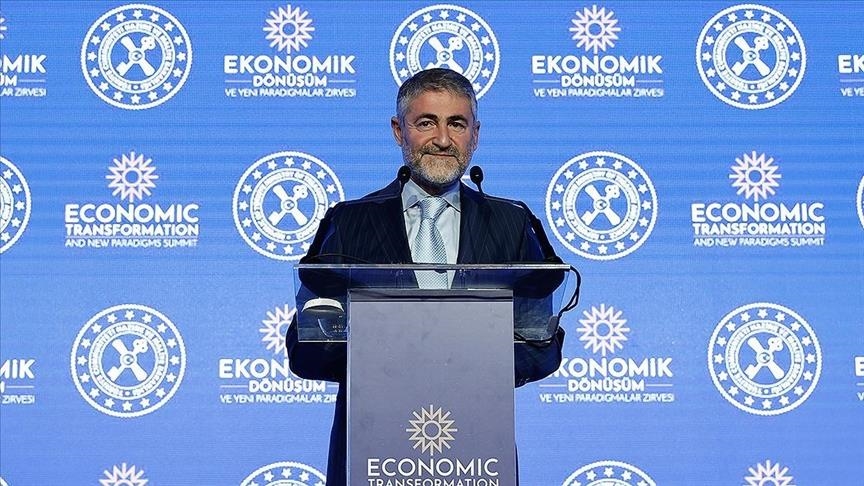ISTANBUL
Türkiye, with its “heterodox economic approach,” hopes to solve structural problems and make itself an important global supply and production center in the post-pandemic period, the country’s treasury and finance minister said on Thursday.
Speaking at the Economic Transformation and New Paradigms Summit in Istanbul, Nureddin Nebati said Türkiye’s export-oriented perspective disposed of the presuppositions and claims of the mainstream economic approach and focused on increasing investment, production, and employment.
Stressing that different economic approaches rose to prevalence in different periods in history, Nebati said: “While mercantilism was dominant, it was argued that the main source of the state’s power was the number of its precious metals. In the 18th century, physiocracy argued that the wealth of the country came from nature and agricultural activity.”
He added that the Industrial Revolution at the end of the 18th century led to the emergence of classical economic thought, adopting a free market economy without state intervention.
In his address, Nebati also highlighted that the same economic policies did not always bear the same results in a different country.
“A policy that positively affects the growth performance of one country’s economy may cause inflationary pressures in another country,” he said, adding that this was because “each country has different and unique features in many aspects, such as culture, institutional infrastructure, geographical location, natural resources, and sectoral structure.”
Orthodox and heterodox policies
Orthodox economic policies, which are presented to developing countries as the only recipe for development, have resulted in large current account deficits and caused debt crises in many developing nations, Nebati asserted.
The minister pointed to the COVID-19 pandemic, which erupted as the world was witnessing trade wars and tensions between the US and China, as a milestone that paved the way for “deep-rooted transformations” in both economic paradigm and practice.
“In this period, Türkiye has undoubtedly become a strong alternative supplier country with its strategic location and many competitive advantages,” he added.
Nebati highlighted that the Turkish government sought to protect the country’s economy from global upheaval, prevent welfare loss, preserve economic balances, and implement the best policies.
He added: “We’ve adopted a new economic approach with heterodox policies to find solutions to our structural problems and to make Türkiye an important global supply and production center in the post-pandemic period.”
“The main purpose of this approach, which we call the Turkish Economy Model, is to ensure that the country’s economy enters the path of sustainable growth, to eliminate global cyclical problems with the least damage in the short term, and to overcome the middle-income trap in the long-term period.”

